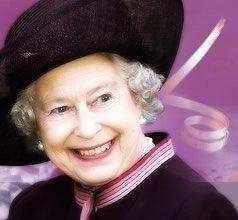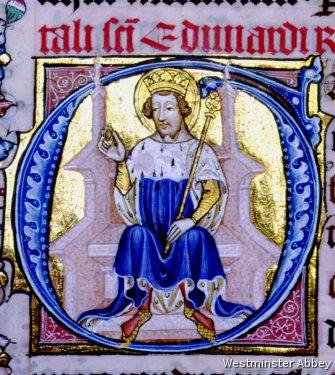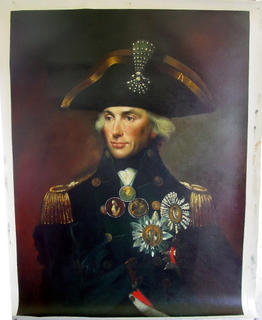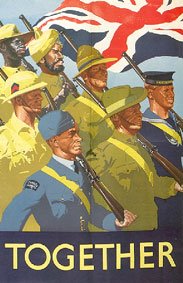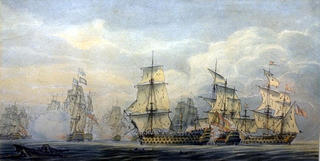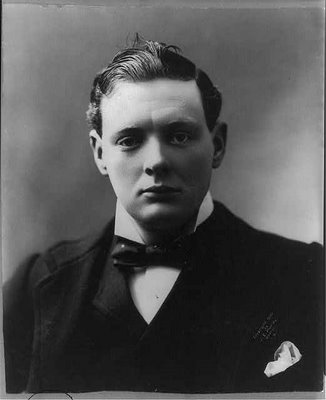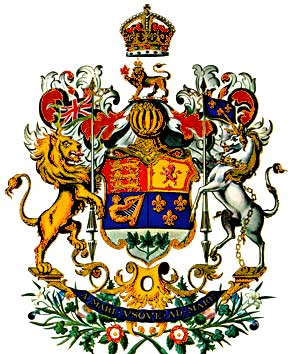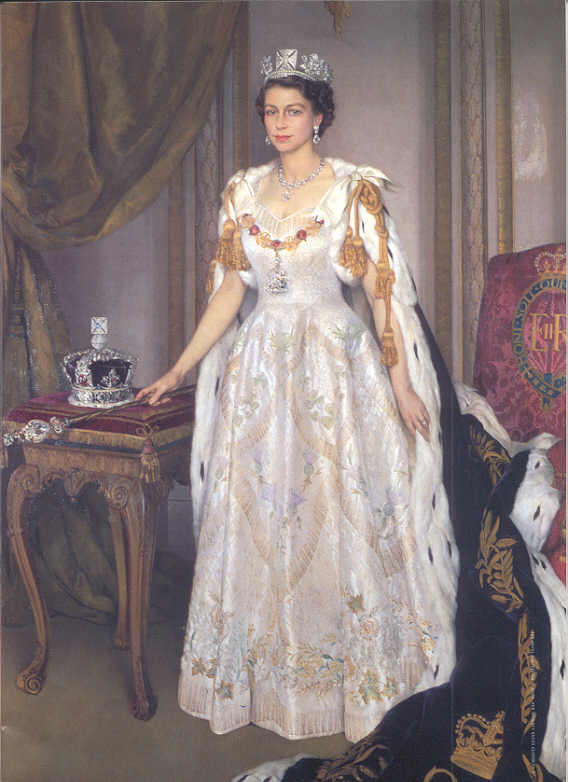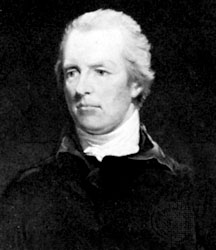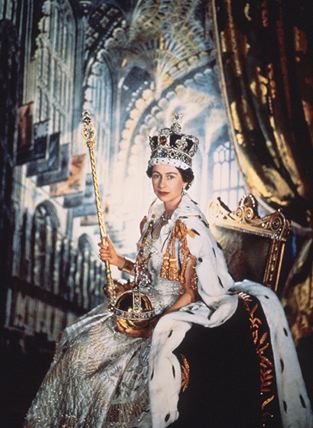[+] HONOURING OUR PATRON, SIR WINSTON CHURCHILL, VICTOR OF THE ENGLISH-SPEAKING PEOPLES
[+] HONOURING OUR QUEEN, ELIZABETH THE SECOND, ON THE 80TH YEAR OF HER BIRTH (1926 - 2006)
[+] HONOURING OUR KING, SAINT EDWARD THE CONFESSOR, ON THE 1000TH YEAR OF HIS BIRTH (1005 - 2005)
[+] HONOURING OUR HERO, LORD NELSON, ON THE BICENTENNIAL OF THE BATTLE OF TRAFALGAR (1805 - 2005)
[+] HONOURING OUR SONS, THE QUEEN'S COMMONWEALTH SOLDIERS KILLED IN THE 'WAR ON TERROR'
[+] HONOURING OUR VETS ON THE 150TH ANNIVERSARY OF THE VICTORIA CROSS (1856 - 2006)
Monarchist Author: David Byers from Australia
Joined on August 1, 2005
Archive of the Author's Works
Sir Samuel Walker Griffith (1845-1920), Australian Politician and Judge; Principal Author of the Constitution of Australia
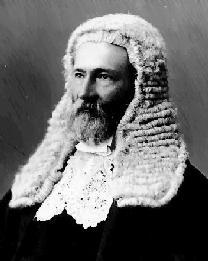 Premier of Queensland and first Chief Justice of Australia, was born at Merthyr Tydfil, Wales, on 21 June 1845 and came to Australia in 1854. Griffith attended Maitland High School and Sydney University (BA hons, 1863; MA, 1870), and was called to the Bar in Brisbane in 1867.
Premier of Queensland and first Chief Justice of Australia, was born at Merthyr Tydfil, Wales, on 21 June 1845 and came to Australia in 1854. Griffith attended Maitland High School and Sydney University (BA hons, 1863; MA, 1870), and was called to the Bar in Brisbane in 1867. Griffith represented East Moreton (1872-73, Oxley (1873-78) and North Brisbane (1878-93) in the Queensland Legislative Assembly, and as Attorney-General in 1874. When Sir Thomas McIlwraith became Premier in 1879 Griffith became a most determined Leader of the Opposition. In November 1883 he succeeded in displacing McIlwraith and was returned as Premier and Colonial Secretary, largely through his opposition to kanaka labour. He was replaced by McIlwraith in June 1888 but in August 1890 again became Premier in a coalition ministry with McIlwraith which lasted until March 1893, when he retired to become Chief Justice of Queensland.
Griffith compiled Queensland's Criminal Code and proposed the Federal Australasian Council which he presided over at various times. He represented Queensland at the Colonial Conference (London, 1887) and the Federal Conference (1890), and became vice-president of the 1891 Convention (under Sir Henry Parkes). He was the main draftsman of the Bill which formed the basis of Australia's constitution.
Griffith served as Lieutenant-Governor (1899-1903) and visited London when the Commonwealth Bill passed through the British Parliament. He became a Privy Councillor in 1901 and was the obvious choice as Chief Justice of Australia when the High Court was established (1903).
Appointed KCMG (1886) and GCMG (1895), he became Vice-President of the Royal Colonial Institute (1909), honorary Doctor of Laws (Queensland 1912, and Wales 1913) and honorary Fellow of the British Academy (1916).
He retired from the High Court in August 1919, and died in Brisbane on 9 August 1920.
Links: Wikipedia; Samuel Griffith Society; The Australian Constitution; Griffith University, Brisbane
Monarchist Author: Patrick from Scotland
Joined the Monarchist on August 31, 2005
Member of the Federal Commonwealth Society
Admiral Adam Duncan Lord Viscount of Camperdown and Baron of Lundie (1731-1804), Naval Hero
 Naval commander. Born in Lundie, the son of a Dundee Lord Provost, Duncan joined the navy at the age of 14. He is famous for his victory over the Dutch at Camperdown; while Commander-in-Chief of the British Navy in the North Sea he led his fleet of 24 ships to victory in 1797. A grateful nation awarded him titles Baron of Lundie and Viscount Camperdown in addition to the extraordinary sum of £3000 per year as a pension. Part of his family estates now form the Camperdown Park in Dundee. Duncan also maintained a residence in George Square, Edinburgh, in the 1790s.
Naval commander. Born in Lundie, the son of a Dundee Lord Provost, Duncan joined the navy at the age of 14. He is famous for his victory over the Dutch at Camperdown; while Commander-in-Chief of the British Navy in the North Sea he led his fleet of 24 ships to victory in 1797. A grateful nation awarded him titles Baron of Lundie and Viscount Camperdown in addition to the extraordinary sum of £3000 per year as a pension. Part of his family estates now form the Camperdown Park in Dundee. Duncan also maintained a residence in George Square, Edinburgh, in the 1790s.Duncan was mentor to another British naval hero, Admiral Lord Nelson, who kept a minature of Duncan in his cabin while at sea. This minature can be seen amongst a permanent exhibition dedicated to Duncan at the National War Museum (Edinburgh).
In 1800, Duncan retired but, when hostilities broke out again with the French in 1804, he travelled to London to offer his services once more to the government. Unfortunately, he died while returning to Scotland at Cornhill (across the English border, opposite Coldstream), but his body was brought home and is buried in his family vault in Lundie Churchyard.
Monarchist Contributor: Daniel P. Dykes from Australia
Joined on August 1, 2005
Personal Website: Daniel P. Dykes
Website Designer of Australians for Constitutional Monarchy
Archive of the Author's Works
The Right Honourable Sir Robert Gordon Menzies (1894-1978), Australian Statesman and Prime Minister
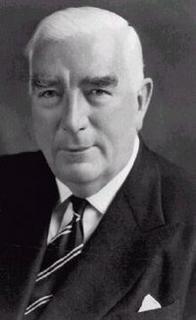 Robert Gordon Menzies was Australia’s longest serving Prime Minister. He held the office twice, from 1939 to 1941 and from 1949 to 1966. Altogether he was Prime Minister for over 17 years – still the record term for an Australian Prime Minister.
Robert Gordon Menzies was Australia’s longest serving Prime Minister. He held the office twice, from 1939 to 1941 and from 1949 to 1966. Altogether he was Prime Minister for over 17 years – still the record term for an Australian Prime Minister.Born into humble circumstances, Menzies obtained a first-class secondary and university education by winning a series of scholarships. He established himself as one of Australia’s leading constitutional lawyers, then entered the Victorian parliament in 1928. He won a seat in the federal parliament in 1934 and served as Attorney-General and Minister for Industry in the United Australia Party government of Joseph Lyons.
Menzies was Prime Minister when World War II began in 1939. In 1941 he lost the confidence of members of Cabinet and his party and was forced to resign. As an Opposition backbencher during the war years, he helped create the Liberal Party and became Leader of the Opposition in 1946. At the 1949 federal election, he defeated Ben Chifley’s Labor Party and once again became Australia’s Prime Minister.
Menzies’ second period as Prime Minister laid the foundations for 22 consecutive years in government for the Liberal–Country Party Coalition.
Menzies was often characterised as an extreme monarchist and ‘British to his bootstraps’, but as Prime Minister he maintained Australia’s strong defence alliance with the United States. During his second period in office the ANZUS and SEATO treaties were signed, Australian troops were sent to support US-led forces in Korea, and Australia made its first commitment of combat forces to Vietnam.
Menzies retired as Prime Minister and from parliament in 1966. Knighted in 1963, he was further honoured in 1965 by being appointed Constable of Dover Castle and Warden of the Cinque Ports.
Robert Gordon Menzies died on 15 May 1978.
Biography Links: Wikipedia; National Library of Australia; Liberal Party of Australia; Official Government; Australian Prime Ministers;The Menzies Foundation; Menzies Virtual Museum; Menzies Centre for Australian Studies, King's College London
Monarchist Contributor: Brent Cameron from Kingston, Ontario
Joined The Monarchist on July 20, 2005
Author of Commonwealth Free Trade
Personal Blog: The New Commonwealth
Member of the Federal Commonwealth Society
Archive of the Author's Works
The Right Honourable Benjamin Disraeli (1804-81), 1st Earl of Beaconsfield, British Statesman and Prime Minister
Disraeli served as chancellor of the Exchequer under Lord Derby as prime minister in Conservative governments of 1852, 1858-59 and 1866-68. The 1858-59 Parliament made the admission of Jews to Parliament legal, clearing the way for a Disraeli's prime ministership following Lord Derby's retirement in 1868. Defeated in a general election by William Gladstone that same year, Disraeli faced another six years of opposition which produced another novel entitled "Lothair" in 1870. He also established the Conservative Central Office, considered by some as the forerunner of modern party organization.
Disraeli became prime minister for the second time in 1874 at the age of 70. Acting on his own, he purchased a controlling interest in the Suez Canal conferring the title of Empress of India upon the Queen and in so doing earning himself the title of Earl of Beaconfield in 1876. During the next two years, Disraeli and liberal Leader William Gladstone, clashed over issues surrounding the Bulgarian revolt and the Russo-Turkish War (1877-78). Disraeli represented British interests in the Congress of Berlin, 1878, which brought peace as well as Cyprus under British flag. His government was defeated in 1880. Disraeli died the following year.
Biography Links: Wikipedia; Spartacus; The Victorian Web
Honouring The Right Honourable Edmund Burke
 Having been denied my first choice hero to represent on this first class blog, I will have to settle for my second, the Right Honourable Edmund Burke. As a Wiltshire man and an English bloke from the small town of Purton just outside of Swindon, it will be my distinct privilege to provide The Monarchist with enough English content to more balance the blog's coverage across the British Commonwealth. I purposely say English content instead of British content, in order not to offend our shared Britishness and pride in the British Crown and tradition that obviously is the mainstay of this project. It is the thing that unites us all.
Having been denied my first choice hero to represent on this first class blog, I will have to settle for my second, the Right Honourable Edmund Burke. As a Wiltshire man and an English bloke from the small town of Purton just outside of Swindon, it will be my distinct privilege to provide The Monarchist with enough English content to more balance the blog's coverage across the British Commonwealth. I purposely say English content instead of British content, in order not to offend our shared Britishness and pride in the British Crown and tradition that obviously is the mainstay of this project. It is the thing that unites us all.But why does it unite us? Fundamentally it does so because unlike almost all other nations on this planet, we were the ones who succeeded in finding the right balance between liberty and authority. We escaped the tyrannies of the 18th, 19th and 20th centuries, because men like Edmund Burke made us understand that one without the other was impossible. Authority without liberty is dictatorship, and liberty without authority is the mob. Churchill on Burke says it best:
"On the one hand [Burke] is revealed as a foremost apostle of Liberty, on the other as the redoubtable champion of Authority. But a charge of political inconsistency applied to this life appears a mean and petty thing. History easily discerns the reasons and forces which actuated him, and the immense changes in the problems he was facing which evoked from the same profound mind and sincere spirit these entirely contrary manifestations. His soul revolted against tyranny, whether it appeared in the aspect of a domineering Monarch and a corrupt Court and Parliamentary system, or whether, mouthing the watch-words of a non-existent liberty, it towered up against him in the dictation of a brutal mob and wicked sect. No one can read the Burke of Liberty and the Burke of Authority without feeling that here was the same man pursuing the same ends, seeking the same ideals of society and Government, and defending them from assaults, now from one extreme, now from the other."
And that's all that needs to be said on that. Look for much more Burke in the coming days.
Monarchist Contributor: Brian Anderton from New Zealand
Joined The Monarchist on Aug 22, 2006
Link to the Author's Blog: New Zealand Monarchy
Sir George Edward Grey (1812-1898), Prime Minister of New Zealand
 Grey was born in Lisbon Portugal in 1812. He was educated at Guilford Surrey, and in 1826 entered Sandhurst, where he gained his ensingency in the 83rd Foot.
Grey was born in Lisbon Portugal in 1812. He was educated at Guilford Surrey, and in 1826 entered Sandhurst, where he gained his ensingency in the 83rd Foot.After some time working with his regiment in Glasgow and then Ireland, Grey entered the senior department of the Royal Military College, where he excelled and gained his captaincy. Grey spent some time in Australia, while he was there he was leader of two expeditions in Western Australia 1837-39, Resident at King George's Sound Albany Western Australia 1839, and Governor of South Australia 1841. However intelligence from New Zealand indicated that the current administration there was not successful. The Colonial Office alarmed at the tension between the natives and whites, turned to Grey. He landed at Auckland on 18 November 1845, and immediately headed for the Bay of Islands and on 1 January 1848 assumed office as Governor-in-chief of New Zealand. During that year he was knighted.
Grey rapidly acquired great mana with the Maori, and even had a command of the language. In 1853 he visited many of the Pacific Island, and arrived in South Africa early 1854 to assume the governorship of Cape Colony together with the high commissioner-ship of South Africa.
When Grey set foot again in New Zealand he found a very unhappy conflict between two races, he again became Governor of New Zealand from 1861 to 1868. On 24 March 1875 he was elected both as MP for Auckland City West and Superintendent of the Auckland Province, both positions he held for a year. Grey later became MP for Thames, in 1876, and on the defeat of Atkinson, 13 October 1877, he formed a ministry ad Premier. His ministry got into difficulties over land tax and a commercial crisis. He carried on for a few weeks after being defeated, then asked for a dissolution. Grey was now suffering from ill health and he retired from politics in 1890, leaving for Australia. On returning to New Zealand a deputation requested him to contest the Newton seat, to which he was elected unopposed. In December 1893 Grey was again elected for Auckland City, and kept the position until retiring due to failing health on a visit to England.
Grey died in London on 20 September 1898, two weeks after the death of his wife.
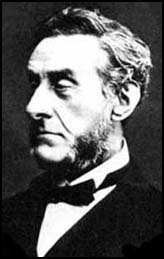 Anthony Ashley Cooper, 7th Earl of Shaftesbury (1801–1885), styled Lord Ashley from 1811 to 1851, was an English philanthropist, one of the best-known of the Victorian era.
Anthony Ashley Cooper, 7th Earl of Shaftesbury (1801–1885), styled Lord Ashley from 1811 to 1851, was an English philanthropist, one of the best-known of the Victorian era.FROM WIKIPEDIA:
The Earl of Shaftesbury by Carlo Pellegrini, 1869.Born in London, he was educated at Harrow School and Christ Church College, Oxford. He became a Tory MP (Member of Parliament) in 1826, and almost immediately became a leader of the movement for factory reform. He was largely responsible for the Factory Acts of 1847 and 1853, as well as the Coal Mines Act of 1842 and the Lunacy Act of 1845. One of his chief interests was the welfare of children, and he was chairman of the Ragged Schools Union and a keen supporter of Florence Nightingale.
The Shaftesbury Memorial in Piccadilly Circus, London, erected in 1893, was designed to commemorate his philanthropic works. The Memorial is crowned by Alfred Gilbert's aluminium statue of a nude, winged archer. This is officially titled The Angel of Christian Charity, but has become popularly known as Eros. The use of a nude figure on a public monument was controversial at the time, but the statue has become a London icon and appears on the masthead of the Evening Standard.
See Spartacus Biography
Monarchist Author: Karen Spragge
Joined the Monarchist on October 16, 2005.
Honouring Charlotte "Jane Eyre" Brontë (1816-1855)
 FROM WIKIPEDIA: Charlotte Brontë was an English novelist, the eldest of the trio of Brontë sisters whose novels have become enduring classics of English literature.
FROM WIKIPEDIA: Charlotte Brontë was an English novelist, the eldest of the trio of Brontë sisters whose novels have become enduring classics of English literature.Brontë was born at Thornton, in Yorkshire, England, the eldest surviving daughter of a clergyman of Irish descent and eccentric habits who embittered the lives of his children by his peculiar theories of education, Patrick Brontë (who had changed his surname from Brunty or Prunty) and his wife, Maria Branwell. In 1820 the family moved to the now world-famous rectory at Haworth, where the children created their own fantasy world which would inspire them to take up writing. Charlotte's mother died of cancer on 15 September 1821. In August 1824 she was sent with three of her four sisters to the Clergy Daughters' School at Cowan Bridge in Lancashire where the appalling conditions caused them to be brought home separately in 1825. Charlotte and Emily were the last to leave; they returned on 1 June. Her two elder sisters, Maria and Elizabeth, died soon after their return from the tuberculosis that they had contracted whilst at the school.
Charlotte continued her education at home until she joined Roe Head school in Mirfield on 17 January 1831, where she stayed until June 1832. In 1835 Charlotte returned to her former school to work as a teacher, a career in which she continued, on and off, until 1838. In 1839 she took up the first of many positions as governess to various families in Yorkshire, a career she pursued until 1841. In 1842 she travelled to Brussels with Emily, where they enrolled in a pensionnat ran by M. and Mme. Constantin Heger. In return for board and tuition, Charlotte taught English and Emily taught music. Their time at the pensionnat was cut short when Elizabeth Branwell, their aunt who joined the family after the death of their mother to look after the children, died of internal obstruction in October 1842. Charlotte returned alone to Brussels in January 1843 to take up a teaching post at the pensionnat. Her second stay at the pensionnat was not a happy one; she became lonely, homesick, and somewhat attracted to M. Heger and finally returned to Haworth in January 1844. Her time at the pensionnat and the characters of M. and Mme. Heger can be seen as the inspiration for some of the settings, events, and characters in her later novels The Professor and Villette.
In May 1846, she and her two younger sisters, Anne and Emily, published a joint collection of poetry under the names of Currer, Ellis, and Acton Bell, which, however, fell flat. Charlotte continued to use the name 'Currer Bell' when publishing her first two novels.
Her novels are:
Jane Eyre, published 1847
Shirley, published 1849
Villette, published 1853
The Professor, originally written before Jane Eyre and rejected by many publishing houses, was eventually published posthumously in 1857
Her novels were deemed coarse by the critics. Much speculation took place as to who Currer Bell really was, whether a man or a woman.
Patrick Branwell, the only son of the family, died of chronic bronchitis and marasmus in September 1848, although Charlotte believed his death was due to tuberculosis. Emily and Anne both died of pulmonary tuberculosis in December 1848 and May 1849, respectively. Branwell's death was exacerbated by heavy drinking and a debauched lifestyle. Charlotte and her father were now left alone. In view of the enormous success of Jane Eyre, Charlotte was persuaded by her publisher to occasionally visit London, where she revealed her true identity and began to move in a more exalted social circle, becoming friends with Harriet Martineau, Elizabeth Gaskell, William Makepeace Thackeray or G. H. Lewes; however, she never left Haworth for more than a few weeks at a time as she did not like to leave her aging father's side.
In June 1854 Charlotte married Arthur Bell Nicholls, her father's curate. She died less than a year later during her first pregnancy. Her death certificate gives the cause of death as phthisis (tuberculosis) but there is a school of thought that suggests she may have died from her excessive vomiting caused by severe morning sickness in the early stages of pregnancy. There is also evidence that Charlotte died from a stomach bug she caught from Tabby, the Bronte household's oldest servant. One piece of evidence for this theory is that Tabby died of the illness a few weeks earlier, another that Charlotte nursed her during this illness. Charlotte was interred in The Church of St. Michael and All Angels, Haworth, West Yorkshire, England.
Honouring Robert Stephenson Smyth Baden-Powell, 1st Baron Baden-Powell OM, GCMG, GCVO, KCB (22 February 1857 – 8 January 1941)
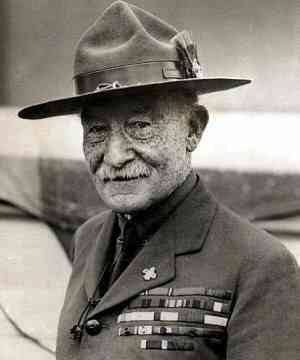 Robert Baden-Powell, also known as B-P, was a Lieutenant-General in the British Army, writer, and founder of the world Scouting Movement.
Robert Baden-Powell, also known as B-P, was a Lieutenant-General in the British Army, writer, and founder of the world Scouting Movement. After having been educated at Charterhouse School, Baden-Powell joined the British Army in 1876, and was posted in India and Africa, and served three years in the British Secret Intelligence Service. In 1899, during the Second Boer War in South Africa, Baden-Powell successfully defended his fortress and the surrounding city in the Siege of Mafeking. In 1910 he retired from the Army.
Baden-Powell was a prolific painter and writer. Several of his military books, written for military reconnaissance and scout training in his African years, were also used by boys. Based on those earlier books, he wrote Scouting for Boys, published in 1908 by Pearson, for youth readership. During writing, he tested his ideas through a camping trip on Brownsea Island in 1907, which is now seen as the beginning of Scouting. After his marriage with Olave StClair Soames, he, his sister Agnes Baden-Powell and notably his wife actively gave guidance to the Scouting Movement and the Girl Guides Movement. Baden-Powell is buried in Nyeri, Kenya.
LINKS: Chief Scout of the World; Boy Scouts of America; Scouts Canada; ScoutBase UK; Scouts of Australia; Scouting New Zealand.Honouring Captain Sir Richard Francis Burton, KCMG, FRGS, (March 19, 1821 – October 20, 1890)
 Sir Richard Francis Burton was an English explorer, translator, writer, soldier, orientalist, ethnologist, linguist, poet, hypnotist, fencer and diplomat. He was known for his travels and explorations within Asia and Africa as well as his extraordinary knowledge of languages and cultures. According to one count, he spoke twenty-nine European, Asian, and African languages.[1]
Sir Richard Francis Burton was an English explorer, translator, writer, soldier, orientalist, ethnologist, linguist, poet, hypnotist, fencer and diplomat. He was known for his travels and explorations within Asia and Africa as well as his extraordinary knowledge of languages and cultures. According to one count, he spoke twenty-nine European, Asian, and African languages.[1]Burton's best-known achievements include travelling in disguise to Mecca, making an un-bowdlerised translation of The Book of the Thousand Nights and a Night (the collection is more commonly called The Arabian Nights in English because of Andrew Lang's abridgement) and the Kama Sutra and journeying with John Hanning Speke to discover the Great Lakes of Africa in search of the source of the Nile. He was a prolific author and wrote numerous books and scholarly articles about subjects including travel, fencing and ethnography.
He was a captain in the army of the East India Company serving in India (and later, briefly, in the Crimean War). Following this he was engaged by the Royal Geographical Society to explore the east coast of Africa and led an expedition which discovered Lake Tanganyika. In later life he served as British consul in Fernando Po, Damascus and, finally, Trieste. He was a Fellow of the Royal Geographical Society and was awarded a knighthood (KCMG) in 1886. Burton was considered a controversial figure in his day and, while some considered him a hero, others considered him a scoundrel.
LINKS: Burton on Wikipedia; Homepage: Sir Richard F. Burton on the Web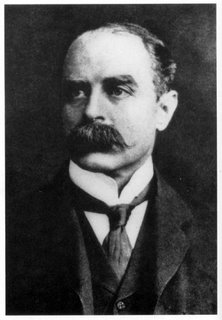 Honouring Colonel Sir Francis Edward Younghusband (31 May 1863 - 31 July 1942) was a British Army officer, explorer, and spiritualist. He is remembered chiefly for his travels in the Far East and Central Asia and his writings on the subject.
Honouring Colonel Sir Francis Edward Younghusband (31 May 1863 - 31 July 1942) was a British Army officer, explorer, and spiritualist. He is remembered chiefly for his travels in the Far East and Central Asia and his writings on the subject. Francis Younghusband was born in 1863 at Murree in India to a British military family, John Younghusband and his wife Clara Shaw. Clara's brother, Robert Shaw, was a noted explorer of Central Asia. As an infant, Francis was taken to live in England by his mother. When Clara returned to India in 1867 she left her son in the care of two austere and strictly religious aunts. In 1870 his mother and father returned to England and reunited the family. In 1876 at age thirteen Francis entered Clifton College, Bristol. In 1881 he entered the Royal Military Academy Sandhurst and in 1882 he was commissioned as a subaltern in the 1st King's Dragoon Guards.
In 1886, on leave from his regiment, Younghusband made an expedition through Manchuria, crossing the Gobi Desert and pioneering a route from Kashgar and India through the uncharted Mustagh Pass. For this he was elected the youngest member of the Royal Geographic Society and received the society's coveted gold medal.
In 1889, Younghusband was dispatched with a small escort of Gurkha soldiers to survey an uncharted region of the Hunza valley and the Khunjerab Pass through the Karakoram mountain range. Whilst encamped in a remote area of Hunza, Younghusband received a messenger at his camp, inviting him to dinner with Captain Gromchevsky, his Russian counterpart in "The Great Game". Younghusband accepted the invitation to Gromchevsky's camp, and after dinner the two rivals talked into the night, sharing brandy and vodka, and discussing the possibility of a Russian invasion of British India. Gromchevsky impressed Younghusband with the horsemanship skills of his Cossack escort, and Younghusband impressed Gromchevsky with the rifle drill of his Gurkhas. After their meeting in this remote frontier region, Gromchevksy resumed his expedition in the direction of Kashmir and Younghusband continued his exploration of Hunza.
In 1890, Younghusband transferred to the Indian Political Service. He served as a political officer on secondment from the British Army. He served as British commissioner to Tibet from 1902-1904. In 1903-1904, under orders from the Viceroy of India, Lord Curzon, he led a military mission to Tibet as a result of disputes over the Sikkim-Tibet border; the mission controversially became a de facto invasion and British forces occupied Lhasa. The British force was supported by King Ugyen Wangchuck of Bhutan, who was knighted in return for his services.
In 1906 Younghusband settled in Kashmir as the British representative 1906 before returning to Britain where he became an active member of many clubs and societies. During World War One his patriotic Fight for Right campaign commissioned the song Jerusalem. He was elected President of the Royal Geographic Society in 1919. Later he actively encouraged climbers, including George Mallory, to attempt Mount Everest, and they followed the same initial route as the earlier Tibet Mission. In 1938 Younghusband encouraged Ernst Schäfer, who was about to lead a German expedition to Tibet, to "sneak over the border" when faced with British intransigence towards Schäfer's efforts to reach Tibet.[1]
Younghusband's religious upbringing had a profound influence on his later life. In 1884 he wrote in his diary that "I shall through my life be carrying out God's Divine message to mankind". Later, recovering from an accident, he would read Leo Tolstoy's The Kingdom of God is Within You - a book which also greatly influenced Mahatma Gandhi. Younghusband was the founder of the World Congress of Faiths (1936), and he wrote several books on faith and spirituality. He encouraged one his domestic servants, Gladys Aylward, to become a Christian missionary to China.
Monarchist Contributor: Edward Harris from London and Shropshire, England
Joined the Monarchist in June 2005
Archive of the Author's Works
Honouring Marcus Porcius Cato the Younger (95 BC–46 BC), Roman Statesman (Cato of Utica)
 Roman statesman, great-grandson of Cato the Elder. Reared by his uncle Marcus Livius Drusus, he showed an intense devotion to the principles of the early republic. He had one of the greatest reputations for honesty and incorruptibility of any man in ancient times, and his Stoicism put him above the graft and bribery of his day. His politics were extremely conservative, and his refusal to compromise made him unpopular with certain of his colleagues. He was from the first a violent opponent of Julius Caesar and, outdoing Cicero in vituperation of the conspiracy of Catiline in 63 B.C., tried to implicate Caesar in that plot, although maintaining his fairness to all. As a result he was sent (59 B.C.) to Cyprus by Clodius in what amounted to exile. He and his party supported Pompey after the break with Caesar. He accompanied Pompey across the Adriatic and held Dyrrhachium (modern Durazzo) for him until after the defeat at Pharsalus. Then he and Quintus Caecilius Metellus Pius Scipio went to Africa and continued the struggle against Caesar there. Cato was in command at Utica. After Caesar crushed (46 B.C.) Scipio at Thapsus, Cato committed suicide, bidding his people make their peace with Caesar. Cicero and Marcus Junius Brutus (Cato’s son-in-law) wrote eulogies of him while Caesar wrote his Anticato against him; the noble tragedy of his death has been the subject of many dramas. He became the symbol of probity in public life.
Roman statesman, great-grandson of Cato the Elder. Reared by his uncle Marcus Livius Drusus, he showed an intense devotion to the principles of the early republic. He had one of the greatest reputations for honesty and incorruptibility of any man in ancient times, and his Stoicism put him above the graft and bribery of his day. His politics were extremely conservative, and his refusal to compromise made him unpopular with certain of his colleagues. He was from the first a violent opponent of Julius Caesar and, outdoing Cicero in vituperation of the conspiracy of Catiline in 63 B.C., tried to implicate Caesar in that plot, although maintaining his fairness to all. As a result he was sent (59 B.C.) to Cyprus by Clodius in what amounted to exile. He and his party supported Pompey after the break with Caesar. He accompanied Pompey across the Adriatic and held Dyrrhachium (modern Durazzo) for him until after the defeat at Pharsalus. Then he and Quintus Caecilius Metellus Pius Scipio went to Africa and continued the struggle against Caesar there. Cato was in command at Utica. After Caesar crushed (46 B.C.) Scipio at Thapsus, Cato committed suicide, bidding his people make their peace with Caesar. Cicero and Marcus Junius Brutus (Cato’s son-in-law) wrote eulogies of him while Caesar wrote his Anticato against him; the noble tragedy of his death has been the subject of many dramas. He became the symbol of probity in public life.
Monarchist Contributor: Australian Professor of Law from Sydney
Joined the Monarchist in June 2005
Archive of Author's Works
Honouring Henry St John, 1st Viscount Bolingbroke (1678-1751), English Statesman
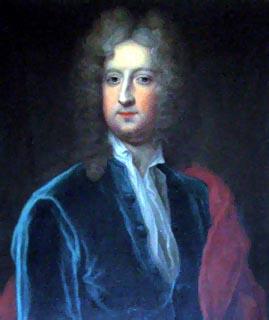 Prominent Tory politician and prime minister in the reign of Queen Anne of England and, later, a major political propagandist in opposition to the Whig Party led by Sir Robert Walpole. Friend of Swift and Pope (to whom he suggested the 'Essay on Man'). He wrote "Letters" bearing on politics and literature, and his chief fame is that of a rhetorician. His Ideal of a Patriot King shows him at his best.
Prominent Tory politician and prime minister in the reign of Queen Anne of England and, later, a major political propagandist in opposition to the Whig Party led by Sir Robert Walpole. Friend of Swift and Pope (to whom he suggested the 'Essay on Man'). He wrote "Letters" bearing on politics and literature, and his chief fame is that of a rhetorician. His Ideal of a Patriot King shows him at his best. Early career.
He was possibly educated at a Dissenting academy rather than at Eton and the University of Oxford, as has been claimed. In 1698–99 he traveled in Europe and in 1700 married Frances Winchcombe. In 1701 he entered Parliament, where he soon won a reputation by his superb oratory and his support of partisan Tory measures, including attacks on the previous Whig ministry and on the Protestant Dissenters, the Whigs' staunchest allies. His conduct soon brought him to the notice of the government, and, after he was made secretary at war (1704), he was converted, temporarily, to the moderate policies of Robert Harley, one of Queen Anne's principal ministers. For four years he worked hard to provide the Duke of Marlborough (1650-1722) with troops and equipment for the Spanish Succession, War of the (1701-1714) against France and then resigned with Harley (February 1708) when they failed to prevent the Whigs from dictating government policy. Failing to gain a seat in the 1708–10 Parliament, he urged Harley to ally with the Tory Party as the best means to defeat the Whigs.
In 1710 St. John became northern secretary of state in Harley's new ministry, but he soon emerged as an opponent of Harley's moderation and a rival to his authority. His efforts to control the government's policies and to supplant Harley (after 1711 the earl of Oxford) were largely unsuccessful. Oxford had initiated secret peace negotiations with France, but, even after he had learned of these and had forced his way into the discussions, St. John (after 1712 Viscount Bolingbroke) was not able to dictate the terms that were finally settled at the Treaty of Utrecht (1713). In Parliament, Bolingbroke was no more successful in leading a Tory rebellion against Oxford. He won over some Tories by such partisan measures as the Schism Act (1714), which aimed at depriving the Dissenters of their schools, but he failed to persuade the majority to support his leadership and was unable to give the Tories a clear lead on the disputed succession to Queen Anne. Oxford was eventually dismissed on July 27, 1714, but the Queen's death, on August 1, ruined Bolingbroke's hopes of replacing him.
Exile in France.
Dismissed from office by George I and fearing impeachment because of his role in the peace negotiations with France and his intrigues with the Jacobites (the supporters of James Edward, the Old Pretender), Bolingbroke fled to France (March 1715) and became the Old Pretender's secretary of state in July. This enabled the British government to pass an act of attainder against him by which his property and civil liberties were taken away. As a result, Bolingbroke's political future depended upon a successful Jacobite rebellion. Despite Bolingbroke's hard work, the attempted Jacobite rising in 1715 was a dismal failure. Amidst bitter recriminations, Bolingbroke was dismissed by the Old Pretender and at once sought to ingratiate himself with the Whig government in England. In 1717 he wrote a Letter to Sir William Wyndham (not published until 1753) to defend his actions since 1710 and to persuade the Tories to abandon the Jacobite cause. Not surprisingly, he found it difficult to persuade men to forget his recent conduct.
Forced to remain in exile, Bolingbroke sought other outlets for his talents. Mixing with aristocrats and scholars, including Voltaire, he embarked on biblical, historical, and philosophical studies and wrote several works, including Reflections upon Exile and Reflections Concerning Innate Moral Principles. Shortly after the death of his first wife, he married a French widow, the Marquise de Villette (1719).
 Return to England.
Return to England.After years of petitioning the British government and of trying to assist it with his limited influence at the French court, Bolingbroke was pardoned in 1723. He did not, however, resettle in England until 1725, when an act allowed him to buy a small estate at Dawley, near London; his attainder was never fully reversed, and he was unable to regain his peerage or reclaim his seat in the Lords. He imputed this exclusion from parliamentary life to the animosity of Sir Robert Walpole. Though his own frustrated ambition clearly motivated his long campaign against Walpole's political ascendancy, he was also concerned by the way Walpole appeared to monopolize power by the excessive use of bribery and corruption. While charges of such behaviour were exaggerated, there was enough truth in them to build up a formidable opposition to Walpole. At the centre of a literary circle that included Jonathan Swift, Alexander Pope, and John Gay, Bolingbroke waged an influential propaganda campaign. His major contributions to The Craftsman, an opposition journal, were the “Remarks on the History of England” (1730–31) and “A Dissertation upon Parties” (1733–34), both of which sought to end the old Whig–Tory disputes and to weld the disparate elements of the opposition to Walpole into a new Country Party, which would protect the independence of Parliament against the encroachments of a corrupt government.
Despite occasional successes, Bolingbroke was unable to bring down Walpole or create a united opposition party. In 1735 he retreated to France, where he continued his studies in philosophy and history, lamenting his countrymen's lack of patriotism in the struggle against Walpole. After he made a short visit to England in 1738, his hopes were revived when he learned of a new opposition party that was gathering at Leicester House around George II's son Frederick, prince of Wales. For this group, he wrote The Idea of a Patriot King. It was his most famous work, but it offered no real solution to the problems of defeating Walpole or of creating a “patriot” party. In any event, Prince Frederick did not live to become king, and Walpole's final defeat, in 1742, was not engineered by Bolingbroke.
In his last years, Bolingbroke lacked any real political influence, though he still made vain efforts to create a patriot ministry. He was further embittered by his discovery, in 1744, that Alexander Pope had secretly printed 1,500 copies of The Idea of a Patriot King for publication. When, in 1749, Bolingbroke published a corrected version of this work, he was bitterly attacked for taking the opportunity to reveal Pope's earlier breach of faith. Bolingbroke's failing health was further undermined by his distress at his wife's death (March 1750).
Bolingbroke was also a historian of some talent. Intelligent and widely read, he was also noted for his handsome appearance, graceful manners, and brilliant conversation. Clear and forceful in speech and in print and imperious in temperament, he captivated some of the finest minds of his age. On the other hand, he was a notorious libertine and a poor manager of men who tended to lose his nerve in a crisis, and his unscrupulous ambition betrayed him into serious political errors and gained him a reputation for treachery.Though he died a neglected figure, the posthumous publication of his works in 1754 stirred considerable controversy. His unorthodox religious views were at last made public and were denounced on all sides. Modern scholars have paid much less attention to his philosophical works, but he is widely regarded as one of the best contemporary analysts of the politics of the Whig supremacy.
Additional reading
H.T. Dickinson, Bolingbroke (1970), now the standard life, based on extensive research and seeking to integrate and interpret Bolingbroke's political career and intellectual development; W.S. Sichel, Bolingbroke and His Times, 2 vol. (1901–02, reprinted 1968), an old-fashioned biography, which is not very good on interpretation but which quotes much useful source material; G. Holmes, British Politics in the Age of Anne (1967), a brilliant analysis, based on exhaustive research; L. Kramnick, Bolingbroke and His Circle (1968), a stimulating study of the political ideology of the age of Walpole.
Biography Links: Wikipedia; Britannica; Internet Encyclopedia of Philosophy; Royal Berkshire History
Letters and Works: Dissertation Upon Parties; The Idea of a Patriot King; The Study and Use of History; On the Spirit of Patriotism
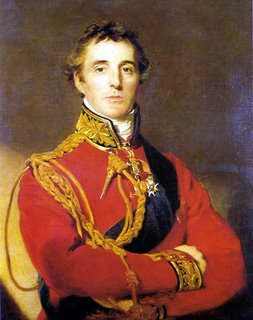 Honouring Field Marshal Arthur Wellesley, 1st Duke of Wellington, KG, GCB, GCH, PC, FRS (c. 1 May 1769 – 14 September 1852)
Honouring Field Marshal Arthur Wellesley, 1st Duke of Wellington, KG, GCB, GCH, PC, FRS (c. 1 May 1769 – 14 September 1852)The Duke of Wellington was an Irish-born British soldier and statesman, widely considered one of the leading military and political figures of the 19th century. Commissioned an ensign in the British Army, he rose to prominence in the Napoleonic Wars, eventually reaching the rank of field marshal.
Wellington commanded the Allied forces during the Peninsular War, pushing the French Army out of Portugal and Spain and reaching southern France. Victorious and hailed as a hero in England, he was sent as British delegate to the Congress of Vienna, but obliged to return to western Europe to command the Allied forces at Waterloo, after which Napoleon was permanently exiled at St. Helena. Wellington was victorious over Napoleon and the French at each of six major battles, confirming his place as one of history's greatest generals.
As a general Wellington is often compared to the 1st Duke of Marlborough, with whom he shared many characteristics, chiefly a transition to politics after a highly successful military career. He served as a Tory Prime Minister of the United Kingdom on two separate occasions, and was one of the leading figures in the House of Lords until his retirement in 1846.
Honouring Henry John Temple, 3rd Viscount Palmerston, KG, GCB, PC (1784–1865)
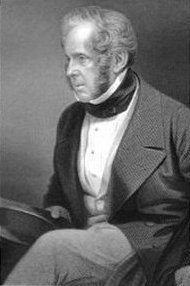 Viscount Palmerston was a British statesman who served twice as Prime Minister of the United Kingdom in the mid 19th century. He was in government office almost continuously from 1807 until his death in 1865, beginning his parliamentary career as a Tory and concluding it as a Liberal.
Viscount Palmerston was a British statesman who served twice as Prime Minister of the United Kingdom in the mid 19th century. He was in government office almost continuously from 1807 until his death in 1865, beginning his parliamentary career as a Tory and concluding it as a Liberal.He is remembered primarily for having directed British foreign policy through most of a 35-year period when the United Kingdom was at the height of its power, serving terms as Foreign Secretary and Prime Minister during this period. His achievements in the field of foreign relations were many and some of his aggressive measures, especially those that are now considered liberal interventionist, drew both support and criticism in his own time and subsequently.
For the first twenty years of his career, Palmerston was chiefly known as a man of fashion, and as a subordinate minister without influence on the general policy of the cabinets he served. Some of the most humorous poetical pieces in the New Whig Guide were from his pen, and he was entirely devoted, like his friends Peel and Croker, to the Tory party of that day. Palmerston never was a real Whig, still less a Radical: he was a politician of the old English aristocratic type, liberal in his sentiments, favourable to the march of progress, but entirely opposed, at least domestically, to the claims of democratic government.
Monarchist Contributor: Stephen Houghton from the United States
Joined the Monarchist on June 5, 2005
Archive of the Author's Works
Link to the Author's Blog: Anglosphere Union Now!
Honouring The Honourable John Adams, 2nd President of the United States
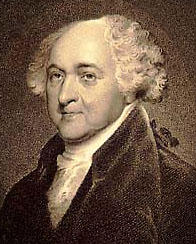 John Adams (October 30, 1735 – July 4, 1826) was a Founding Father of the United States and American politician who served as the first Vice President of the United States (1789–1797), and the second President of the United States (1797–1801). He was defeated for reelection in 1800 by Thomas Jefferson.
John Adams (October 30, 1735 – July 4, 1826) was a Founding Father of the United States and American politician who served as the first Vice President of the United States (1789–1797), and the second President of the United States (1797–1801). He was defeated for reelection in 1800 by Thomas Jefferson.Adams was a sponsor of the American Revolution in Massachusetts, and a diplomat in the 1770s. He was a driving force for independence in 1776—the "Colossus of Independence," declared Thomas Jefferson. As a statesman and author Adams helped define republicanism as the core American political value, meaning overthrow of monarchy and, especially, rule by the people, hatred of corruption, and devotion to civic duty. As President he was frustrated by battles inside his own Federalist party against a faction led by Alexander Hamilton, but he broke with them and averted a major war with France in 1798, during the Quasi War crisis.
Regarded as one of the Founding Fathers of the United States, he became the founder of an important family of politicians, diplomats and historians, and his reputation has been rising in recent years. Historian Robert Rutland concludes, "Madison was the great intellectual ... Jefferson the ... unquenchable idealist, and Franklin the most charming and versatile genius... but Adams is the most captivating founding father on most counts."[1]
Biography Links: White House; AmericanPresidents.ORG; The Adams Papers
Monarchist Contributor: David Hannah from Scotland
Joined in July 2005
Archive of the Author's Works
Honouring Admiral Lord Thomas Cochrane, 10th Earl of Dundonald (1775-1860)
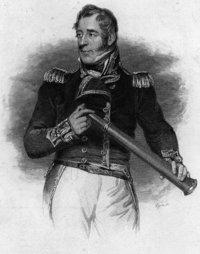 One of the most colourful characters of the era, Thomas Cochrane was courageous, forward-thinking and adventurous.
One of the most colourful characters of the era, Thomas Cochrane was courageous, forward-thinking and adventurous. Originally an infantry officer, Cochrane joined the Royal Navy and took command of a small brig, with which he harassed enemy shipping in the Mediterranean.
Nicknamed the Sea Wolf, Cochrane's audacity knew almost no bounds.
On one occasion his small ship, the Speedy, took on and boarded a Spanish frigate - that had at least six times as many men - and forced its surrender.
As his naval reputation grew, Cochrane found himself more and more at-odds with the political chiefs of his time. He was a Member of Parliament from 1807 and his outspoken criticism of naval corruption infuriated his commanders.
When his uncle was charged with being part of the great Stock Exchange Fraud in 1814, Cochrane's enemies ensured he would be implicated and the innocent Sea Wolf found himself languishing in prison.
Released after a year, Cochrane then gave his services to the navies of Brazil, Chile and Greece.
His name was officially cleared in 1832 and he rejoined the Royal Navy, serving in North America and the West Indies.
He was a firm believer in steamships and one of his pet projects was the idea of using toxic gas in combat.
The grave of this famous admiral is in the central part of the nave. The inscription, written by Sir Lyon Playfair, reads:
“HERE RESTS IN HIS 85th YEAR THOMAS COCHRANE TENTH EARL OF DUNDONALD BARON COCHRANE OF DUNDONALD OF PAISLEY AND OF OCHILTREE IN THE PEERAGE OF SCOTLAND MARQUESS OF MARANHAM IN THE EMPIRE OF BRAZIL G.C.B. AND ADMIRAL OF THE FLEET WHO BY THE CONFIDENCE WHICH HIS GENIUS HIS SCIENCE AND EXTRAORDINARY DARING INSPIRED, BY HIS HEROIC EXERTIONS IN THE CAUSE OF FREEDOM AND HIS SPLENDID SERVICES ALIKE TO HIS OWN COUNTRY GREECE BRAZIL CHILI AND PERU ACHIEVED A NAME ILLUSTRIOUS THROUGHOUT THE WORLD FOR COURAGE PATRIOTISM AND CHIVALRY. BORN DEC 14th 1775. DIED OCT. 31st 1860”
At the top of the stone is his coat of arms, crest and motto “Virtute et Labore” and at each corner are the shields of Chile, Brazil, Peru and Greece.
Biography Links: Wikipedia; Royal Navy; Spartacus; The Historical Maritime Society
Monarchist Contributor: John Fox from North Cantebury, New Zealand
Joined The Monarchist on June 6, 2005
Archive of the Author's Works
Link to the Author's Blog: Home, Throne & Altar
Click here to find out more about this author
Honouring William Pitt the Younger (1759 - 1806), British Prime Minister
 Son of William Pitt the Elder, Earl of Chatham, this William Pitt is the youngest prime minister on record, winning the post at the tender age of 24 in 1783. As prime minister he is remembered for his tough policies against corruption, fiscal reform, shifting power toward the House of Commons and the union with Ireland.
Son of William Pitt the Elder, Earl of Chatham, this William Pitt is the youngest prime minister on record, winning the post at the tender age of 24 in 1783. As prime minister he is remembered for his tough policies against corruption, fiscal reform, shifting power toward the House of Commons and the union with Ireland.Pitt was precocious, entering Cambridge at 14 and Parliament at 22. He was chancellor of the Exchequer in the government of William Petty, Earl of Shelburne (1782-83). The Tories and friends of George III helped him become prime minister.
Unlike his father, Pitt the Younger had a talent for finance. He restructured Britain's finances, negotiated new tariffs with France and faired well in office until 1793 when France declared war - the beginning of years of conflict. In 1798 the Irish revolted against his policies. His solution, the Act of Union 1800, included Catholic emancipation which was rejected by the king. Pitt resigned in protest in 1801.
Returning as prime minister in 1804, he gained the support of the Austrian, Russian and Swedish leaders in an attempt to defeat Napoleon's armies. The news of Napoleon's victory at Austerlitz in 1806 is said to have caused Pitt's death.
Biography Links: Official 10 Downing Street Website; Wikipedia
Pitt's First Ministry (1783-1801)
Pitt's 2nd Ministry (1804-06)
William Pitt in Print
Monarchist Contributor: Author from the United States
Joined the Monarchist in May 2005
Archive of Author's Work
Author's Blog: The Wild Duck
Honouring James Madison, American President and Father of the US Constitution
 James Madison (March 16, 1751–June 28, 1836) was the fourth (1809–1817) President of the United States. He was co-author, with John Jay and Alexander Hamilton, of the Federalist Papers, and is traditionally regarded as the "Father of the United States Constitution."
James Madison (March 16, 1751–June 28, 1836) was the fourth (1809–1817) President of the United States. He was co-author, with John Jay and Alexander Hamilton, of the Federalist Papers, and is traditionally regarded as the "Father of the United States Constitution." Madison was born in King George County, Virginia. His parents Colonel James Madison, Sr (March 27, 1723 – February 27, 1801) and Eleanor Rose "Nellie" Conway (January 9, 1731 – February 11, 1829) were the prosperous owners of the tobacco plantation in Orange County, Virginia where James spent most of his childhood years. In 1769, James left the plantation to attend Princeton University (it was called the College of New Jersey at the time), finishing its four-year course in two years, but exhausting himself from overwork in the process. When he regained his health, he became a proteg頯f Thomas Jefferson. In this capacity he became a prominent figure in Virginia state politics, helping to draft their declaration of religious freedom and persuading Virginia to give their northwestern territories (consisting of most of modern-day Ohio, Kentucky and Tennessee) to the Continental Congress.
In the 1780s, Madison helped convince the political leaders of the time to call for a convention to replace the ineffective Articles of Confederation. Madison was the best prepared delegate at the Constitutional Convention, and his overall influence at Philadelphia in 1787 has led some historians to call him the "Father of the Constitution." Madison called for a strong central government with a bicameral legislature. When the issue arose of how states would be represented in the new Congress, Madison was one of the strongest advocates of state representation depending on population.
His notes from the Constitutional Convention are the best documentary evidence we have as to the thinking of what Thomas Jefferson (who was in France at the time) called an "assembly of demi-gods." To support Constitutional ratification in New York State, Madison put aside his doubts to work with Alexander Hamilton and John Jay to write the Federalist Papers, which are considered the definitive contemporary commentary on the Constitution of the USA. Madison's arguments were powerfully influenced by the political thought of Charles de Secondat, Baron de Montesquieu.
Madison wrote thirty of the eighty-five essays that comprise the Federalist Papers. His most famous passage comes in Federalist No. 51:
"If men were angels, no government would be necessary. If angels were to govern men, neither external nor internal controls on government would be necessary. In forming a government which is to be administered by men over men, the great difficulty lies in this: you must first enable government to control the governed; and in the next place oblige it to control itself."
When the Constitution was ratified, Madison became a U.S. Representative from his home state of Virginia. It was he who successfully proposed the first 10 amendments to the Constitution, known collectively as the Bill of Rights, based on earlier work by George Mason. The chief characteristic of Madison's time in Congress was his desire to limit the power of the federal government. It was when he and the other followers of Thomas Jefferson denied the power of the federal government to form its own bank that the first political parties in the United States were formed: the Federalists, who followed Hamilton and believed in a strong central government, and the Democratic-Republicans, who followed Jefferson and believed strongly in limiting centralized power.
At 5 ft 4 in (163 cm) and 100 pounds (45 kg), Madison was the nation's shortest president and frequently ill. In 1794, Madison married Dolley (Dolley Madison), who cut as attractive and vivacious a figure as he did a sickly and antisocial one. It was Dolley who is largely credited with inventing the role of "First Lady" as political ally to the president.
In 1797 Madison left Congress; in 1801 he became Jefferson's Secretary of State. In 1808, he ran for president in his own right, and won, largely on the strength of his abilities in foreign affairs at a time when United Kingdom (Britain) and France were both on the edge of war with the United States. Both countries were blockading the ports of the other, preventing commerce with either. In 1810, a bill was passed that would break off relations with any nation that would not remove the blockade: France did, and Britain did not.
In the ensuing War of 1812, the British won victory after victory, including a temporary occupation of Washington, D.C., forcing Madison to flee the city. The British also armed American Indians in the West, including the Shawnee under their leader Tecumseh. Neither side was terribly enthusiastic about the war, however: the British had little to gain, and in the United States, New England threatened secession if the war was not ended. In 1814, the Treaty of Ghent ended the war. The Battle of New Orleans (1815), in which Andrew Jackson distinguished himself, was fought 15 days after the treaty was signed – the news not reaching Louisiana in time from Belgium. The major lasting effect for the political face of the country was the end of the Federalist party, who were considered traitors when they opposed the war.
After leaving office, Madison retired to Montpelier, his farm in Virginia. He was briefly the rector of Jefferson's University of Virginia, but spent most of his days farming. Madison was the first president of the American Colonization Society, which bought passage for free black Americans to the Society's colony in west Africa, Liberia. When he died on June 28, 1836, by the terms of his will, $2000 were bequeathed to the ACS through its tireless agent Rev. Dr. Ralph Randolph Gurley but his "ownership in the negroes and people of color" he bequeathed to his wife.[1] (http://www.jamesmadisonmus.org/resources/will.htm) Madison was a slaveholder throughout his entire life.
Biography Links: White House; American Presidents; The Federalist; War of 1812; AmericanPresident.ORG
Monarchist Contributor: Canadian Gentleman and PhD Economist residing in Ottawa, Ontario. Joined the Monarchist in May 2005.
Robert Catesby (1573-1605), English Conspirator and Charismatic Leader of the Gunpowder Plot
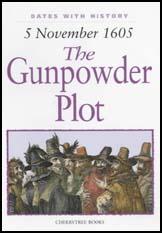 Robert Catesby came from an old midlands family. His ancestors had been famous as politicians. Due to his father's strong Catholic loyalties the family suffered greatly. Robert was born in 1573 and it seems conformed to the state religion. He studied at Gloucester Hall, Oxford in 1586 and married Catherine Leigh-a wealthy Protestant girl (a protestant related to the important Spenser family) when he was nineteen (1593). His wife Catherine Leigh and their oldest son (William) died a few years after their marriage in 1598. His Second son Robert survived. Catesby's house Morecrofts in Uxbridge became a haven for priests. His father also died in 1598. It is believed that his grief turned him into a stronger supporter of the Catholic faith. Catesby already suspect by the government was imprisoned in 1596 as a possible suspect in action leading to the illness of the queen. Involvement in the Essex rebellion (Feb. 8 1601) cost him a fine of 3,000 pounds. Later Catesby joined other Catholics such as Henry Garnet in the Spanish Treason. Catesby possessed a wild and reckless nature and was a popular man. He was known as a good swordsman and was a part of elite court circles. Father Tesimond described him as being over six feet tall with noble and expressive countenance and manners and with an impressive dignity. He traveled the countryside as did many Catholics protecting priests as they traveled from safe house to safe house. Catesby's house in Lambeth was first headquarters of the plot and was used for the initial storage of powder. He was the originator of plot. His mother's 1st cousin (Elizabeth) was wife of Sir Walter Raleigh. Robert Catesby was killed at the shoot out at Holbeach House Nov. 8 1605 along with Thomas Percy (with the same bullet) While professing dedication to God and Church to the end Catesby was primarily a leader of a Catholic political elite which was equally dedicated to obtaining wealth and power through the defeat of the King, the Government and the State Church. (His body was buried at Holbeach but was later dug up and his head brought to Westminster for display)
Robert Catesby came from an old midlands family. His ancestors had been famous as politicians. Due to his father's strong Catholic loyalties the family suffered greatly. Robert was born in 1573 and it seems conformed to the state religion. He studied at Gloucester Hall, Oxford in 1586 and married Catherine Leigh-a wealthy Protestant girl (a protestant related to the important Spenser family) when he was nineteen (1593). His wife Catherine Leigh and their oldest son (William) died a few years after their marriage in 1598. His Second son Robert survived. Catesby's house Morecrofts in Uxbridge became a haven for priests. His father also died in 1598. It is believed that his grief turned him into a stronger supporter of the Catholic faith. Catesby already suspect by the government was imprisoned in 1596 as a possible suspect in action leading to the illness of the queen. Involvement in the Essex rebellion (Feb. 8 1601) cost him a fine of 3,000 pounds. Later Catesby joined other Catholics such as Henry Garnet in the Spanish Treason. Catesby possessed a wild and reckless nature and was a popular man. He was known as a good swordsman and was a part of elite court circles. Father Tesimond described him as being over six feet tall with noble and expressive countenance and manners and with an impressive dignity. He traveled the countryside as did many Catholics protecting priests as they traveled from safe house to safe house. Catesby's house in Lambeth was first headquarters of the plot and was used for the initial storage of powder. He was the originator of plot. His mother's 1st cousin (Elizabeth) was wife of Sir Walter Raleigh. Robert Catesby was killed at the shoot out at Holbeach House Nov. 8 1605 along with Thomas Percy (with the same bullet) While professing dedication to God and Church to the end Catesby was primarily a leader of a Catholic political elite which was equally dedicated to obtaining wealth and power through the defeat of the King, the Government and the State Church. (His body was buried at Holbeach but was later dug up and his head brought to Westminster for display) See: Gunpowder Plot Society
Biography Links: Spartacus; Tudor Place; Britannia
Monarchist Author: Canadian Resident of York, Ontario
Founded "The Monarchist" in January, 2005
From Vancouver Island, British Columbia
Former bridge watchkeeper, Her Majesty's Canadian Navy
Graduate, Royal Military College of Canada
Click here for an Archive of the Author's Works
Honouring The Right Honourable William Maxwell "Max" Aitken, 1st Baron Beaverbrook, PC (1879–1964), Canadian-British Business Tycoon, Politician, Author and Imperial Federalist
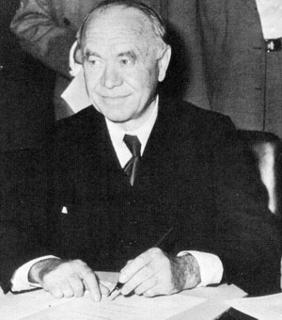 William Maxwell Aitken, the son of a Presbyterian minister, was born in Maple, Ontario, in 1879. He became a stockbroker and by 1910 had made a fortune from Canadian cement mills.
William Maxwell Aitken, the son of a Presbyterian minister, was born in Maple, Ontario, in 1879. He became a stockbroker and by 1910 had made a fortune from Canadian cement mills. Aitken moved to Britain and the followed year became the Conservative member for Ashton-under-Lyne. In the House of Commons Aitken became private secretary to the Colonial Secretary, Andrew Bonar Law. Aitken's visits to the Western Front during the First World War resulted in his book Canada at Flanders (1917). In 1918 David Lloyd George granted Aitken the title, Lord Beaverbrook and appointed him as Minister of Information in his wartime coalition government.
During the war Beaverbrook acquired a controlling interest in the Daily Express. He told his readers that his newspaper was "the prophet of equal opportunity and the unrelenting opponent of that system of preferred chances which gives one man an unfair opportunity over a more competent rival."
Beaverbrook, who developed ideas pioneered by Alfred Harmsworth and the Daily Mail, turned the Daily Express into the most widely read newspaper in the world. Beaverbrook also founded the Sunday Express (1921) and in 1929 purchased the Evening Standard. He also wrote several books including Politicians and the Press (1925) and Politicians and the War (1928).
In the Second World War, Winston Churchill recruited Beaverbrook into his Cabinet where he served as Minister for Aircraft Production (1940-41), Minister of Supply (1941-2), Minister of War Production (1942), and Lord Privy Seal (1943-45). William Maxwell Aitken, Lord Beaverbrook, died in 1964.
Biography Links: Spartacus; Wikipedia
Notable Links: The Beaverbrook Foundation; Beaverbrook Art Gallery;
 WHEREAS the longstanding tradition of representative monarchy as constitutionally practiced by the independent peoples of the United Kingdom of Great Britain and Northern Ireland, Canada, Australia, New Zealand and the other Realms of the Crown Commonwealth is continuously threatened by the unrelenting regressive forces around them, that left unchallenged will cause the venerable institution of monarchy, the most splendid form of constitutional government to have evolved on this Earth, to degenerate into a pathetic shadow of its former glory and inevitably or suddenly wither away;
WHEREAS the longstanding tradition of representative monarchy as constitutionally practiced by the independent peoples of the United Kingdom of Great Britain and Northern Ireland, Canada, Australia, New Zealand and the other Realms of the Crown Commonwealth is continuously threatened by the unrelenting regressive forces around them, that left unchallenged will cause the venerable institution of monarchy, the most splendid form of constitutional government to have evolved on this Earth, to degenerate into a pathetic shadow of its former glory and inevitably or suddenly wither away; AND WHEREAS a defeat for monarchy and for the people in any one Realm, is a defeat for monarchy and for all our peoples in all our Realms, we do hereby mutually proclaim therefore that any further acts of disloyalty carried out against our peoples as represented by their Sovereign, or any further encroachment by the political elite on their residual powers of State, or any further attempts to undermine the legitimacy, independence and dignity of their office, shall no longer be tolerated with gradualist abandonment, but fought vigilantly and honourably with dutiful obligation, bound by our undying affection, loyal devotion and true allegiance to Her Majesty, Queen Elizabeth II, Her Heirs and Successors.
GOD SAVE THE QUEEN.
Monarchist Contributor: Anonymous Canadian Gentleman and PhD Scholar from Ottawa, Ontario
Joined The Monarchist on April 6, 2005.
Fiercely Pro-American and proudly Pro-British
Click here for an archive of the Author's Works.
Honouring Sir Francis Walsingham (1530-1590), English Statesman
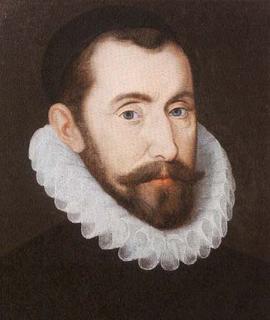 Fanatical and fanatically loyal hatchet man of Queen Elizabeth I. Depending on which side of the theological divide you were on, Francis Walsingham was probably either a heroic defender of the State or a ruthless persecutor of the innocent.
Fanatical and fanatically loyal hatchet man of Queen Elizabeth I. Depending on which side of the theological divide you were on, Francis Walsingham was probably either a heroic defender of the State or a ruthless persecutor of the innocent.Walsingham occupied the trusted role of Secretary of State for 17 years, but more importantly he was Elizabeth I's Controller of Intelligence, a spymaster and latter day equivalent to the head of British intelligence's MI5 (domestic intelligence) and MI6 (overseas) combined. Strongly Protestant, Walsingham was the head of a spy network that included at its simplest level local paid informers, and at its more sophisticated, "plants" in Catholic countries suspected or known to be hostile to England's Reformation. He was successful in countering plots against the Queen, and through the work of his overseas agents was able to give advanced warning of the approach of the Spanish Armada in 1588.
Walsingham was a patron of writers and adapted some of his contacts in the theatrical world to create the Queen's Men, a travelling theatrical group that performed plays with high propaganda content. By performing their entertainments in the grand manor houses of the rich and influential throughout the country, the group also provided eyes in the homes of known and suspected Catholic sympathizers.
Doubtless to those of the Old Faith, Walsingham was a kind of Himmler and Goebels figure combined. Walsingham, meanwhile, balanced the day-to-day business of sanctioning the interrogation and torture of suspects with investments in the voyages of discovery of Sir Francis Drake and Martin Frobisher.
Biography Links: Britannia; Wikipedia; Tudor Place
Monarchist Contributor: Nigel Morris from Australia
Joined the Monarchist on July 31, 2005
President of the Australian Flag Society
Archive of the Author's Works
Honouring Captain James Cook (1728-1779), British Navigator and World Explorer
"... the ablest and most renowned navigator this or any country hath produced. He possessed all the qualifications requisite for his profession and great undertakings ..."
- Lord Palliser, Cook's superior in the Navy
"I now once more hoisted English Coulers and in the Name of His Majesty King George the Third, took possession of the whole Eastern Coast [of New Holland] from the above Latitude down to this place by the name of New South Wales."
—from Capt. Cook's Journal, Wednesday, 22 August 1770
 James Cook was born on October 27, 1728 in Marton, (near modern Middlesborough), Yorkshire, Britain. He commanded three voyages of discovery for Great Britain, and sailed around the world twice. Captain Cook's voyages lead to the establishment of colonies throughout the Pacific by several European countries. He is considered one of the world's greatest explorers.
James Cook was born on October 27, 1728 in Marton, (near modern Middlesborough), Yorkshire, Britain. He commanded three voyages of discovery for Great Britain, and sailed around the world twice. Captain Cook's voyages lead to the establishment of colonies throughout the Pacific by several European countries. He is considered one of the world's greatest explorers.Cook was an apprentice to a shipping company at age 18, and joined the British Navy at 27 in 1755. In 1768, the Navy appointed him leader of a scientific expedition to Tahiti to observe a solar eclipse by Venus. He also had secret orders to seek a southern continent geographers long believed kept the world in balance. He set out on his first voyage round the world in the ship Endeavour. The trip to Tahiti was successful. The search for the southern continent ("Terres Australes" or lands in the south) was not. In October of 1769 Cook was the first European to visit New Zealand.
On August 22, 1770, Cook claimed for Great Britain the eastern coast of New Holland, as Australia was known by the Dutch at that time. He claimed the part of New Holland the Dutch had not technically mapped. The name "Australia" was not used until the early 1800s. During his return trip to England in 1771, Cook was the first ship commander to prevent the outbreak of scurvy, by serving his crew fruit and sauerkraut to prevent the disease.
On Cook's second journey he sailed farther south than any other European. He circled Antarctica in his famous ship Resolution, but the ice surrounding the continent prevented the sighting of land. The existence of the Antarctica remained unproved until 1840. He returned to England in 1775 and was promoted to Captain.
In July of 1776 Cook set sail on his third voyage, again in Resolution. His mission was to look for a possible northern sea route between Europe and Asia. In 1778 he became the first know European to reach the Hawaiian Islands. Later in 1778 Cook sailed up the northwest coast of North America, and was the first European to land on Vancouver Island in British Columbia. He continued up the coast through the Bering strait, and entered the Arctic Ocean. Great walls of ice blocked the expedition, so Cook headed back for the Hawaiian Islands. On February 14, 1779 Cook was stabbed to death by Hawaiian natives while investigating a theft of a boat by an islander. The expedition arrived back in England in October of 1780.


